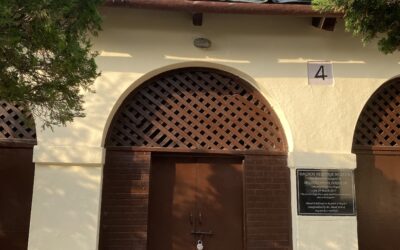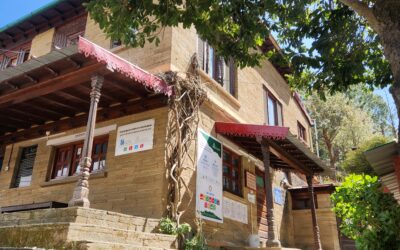We were in Sillet, an isolated village that has no electricity, no telecom signal and no water. We had heard that the people from this village had a problem with us – Swasthya Swaraj. It had something to do with a small facility that we were trying to set up in the village, where our field nurses would stay and work from. A crowd started gathering up as we called people from all the houses. The village is so well designed that people could just sit outside their houses on bench like mud structures and be a part of the meeting. Along with the crowd, a group of drunk men gathered as well, and seemed to be the most affected by the issue.
They came to us and asked us why we had come. We responded that we need a place to stay in the village for the nurses, and the village was not happy with it. To our surprise, our emotions translated to a lot more than we could ever have imagined. One drunk even started shouting that how dare anyone not allow the nurses to stay in the village, and that they will stay in his house from now on. While we deeply appreciated the support, we tried to calm him down, as we wanted to figure out the reasons behind the issue. He did not have it. He wanted justice for us.
At the crucial moment, our driver, Sharma Ji held his arm and took him for a walk. At last, the meeting could start. We asked the people who were sitting, to explain what was bothering them.
They said that the house where the girls would stay is right in front of the village shrine, and it would not be appropriate for women who menstruate to stay there. We were taken aback; it was the first time that we were hearing something that might have been borrowed from Hinduism. I, for one, could immediately think about arguments to make against that claim. The house was not directly in front of the shrine, and it was just one of the many houses in an area that surrounded the “temple”. It could not have been possible that no women stayed there, and moreover, when we agreed to rent the house, the details were all shared with the owner of the land.

However, Dr. Aquinas remained completely silent during the entire conversation. At the end, she did not make any argument. She calmly addressed the crowd. She said that the organization works for the people, and everyone is aware about the work that we do. We will only work if the people want us to, and if you think that this issue is not resolvable, then we will pack our bags and work in other areas. However, we added, that we are willing to make adjustments on our part.
While the communication was not perfect, the understanding was, as there was a brief silence. The few who had not spoken before came in front and said that there is no problem, and you are doing good work, providing an essential service. The problem seemed to have solved itself, even without the active help of the empathetic drunk men.
It was at this point that I could see the philosophy of the organization, how it came into action and interacted with the people. I could not imagine another way of resolving a problem this quickly and effectively, and without insulting or rejecting the problems of the village.
This drive to be accepted and encouraged by the community is sought after a lot in almost all activities that the organization engages in. However, it is hard. We might be in one of the most isolated part of India, but we are not the first outsiders to come here. A lot has been promised to the people, even by our own organization, which has not been followed upon, and later seen as lies by the community.
But what has kept us afloat is the promise of good quality affordable healthcare, which is available in our clinics at least once a week even throughout droughts, deadly monsoons and two waves of the pandemic. Even with our clinics, we have to deny myths such as the presence of spirits and ghosts of the dead. How do we do that? We cannot deny that people die in our clinics, and we certainly cannot deny their beliefs, because that would be ignorant.

Well the immediate question that comes to the mind is, that will we actually give up everything that we are doing if the community doesn’t want us to do it? It has been a rough 6 years since the organization was set-up, with numerous achievements contributed by external bodies. But how do we measure our work with the people? What is our impact?
Malaria has decreased in the region, but it would be ludicrous to say that it has all happened because of our efforts. Comments made upon our hospital range from “we have saved the lives of hundreds” to “we do not give effective medicines and good care”.
If we are looking for the experience of the community, then we would tend to only listen to those who are in favour of us. All we can do is hope that it is a net positive, and we don’t become one of the organizations that we don’t want to become.




Its always enriching to read about the work of Swasthya Swaraj! Thanks Daanish! I really liked how you turned this article into a caution in the wind at the end. Fantastic.